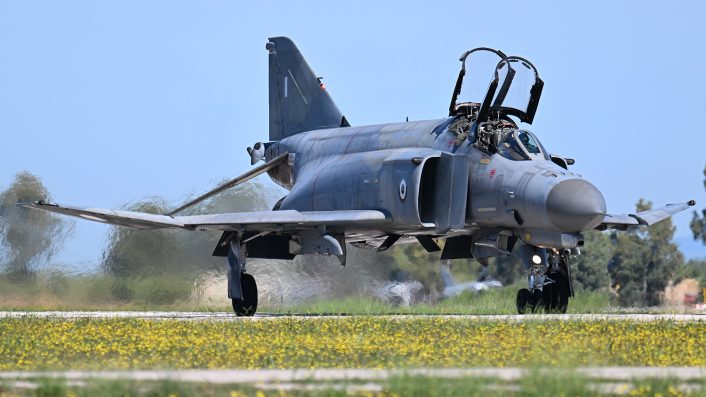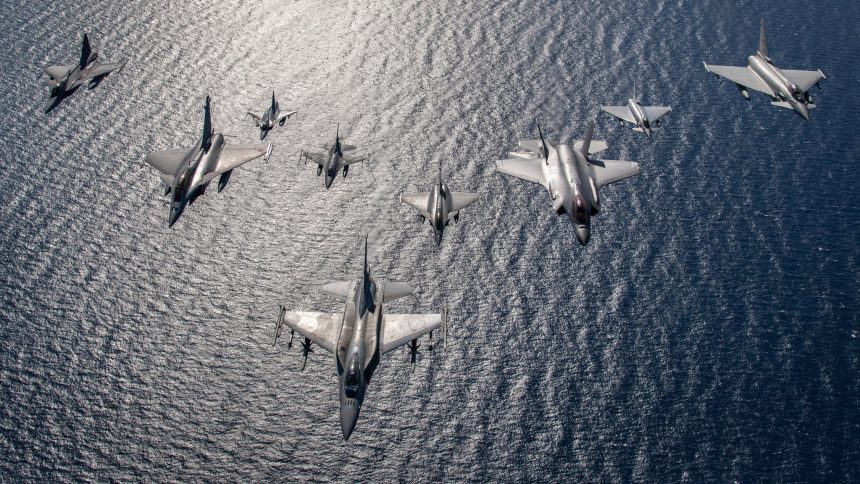Greece has reportedly declined a NATO request to deploy F-16s for air policing in the Baltic region due to its existing obligations in the Balkans and recent international exercises. The decision comes as Greece wraps up its role in NATO’s “Ramstein Flag” exercise, demonstrating its focus on multi-domain defense strategies.
In a recent decision reflecting its growing regional responsibilities, Greece has declined a request from the Baltic nations, Lithuania, Latvia, and Estonia, to participate in NATO’s Baltic Air Policing mission, the online edition of the Greek media outlet Kathimerini, reported. The request had sought the deployment of Greek F-16 fighter jets to safeguard Baltic airspace amid escalating tensions with Russia. However, Greek officials cited the Hellenic Air Force’s (HAF) current obligations in the Balkans and elsewhere as reasons for being unable to take on additional missions.
The Baltic countries, which lack their own combat aircraft, rely heavily on NATO for air defense, especially as Russian military activity near their borders increases. This reliance has prompted the Baltic nations to request additional support from their NATO allies. Greece, though, has expressed that its air force is already stretched thin, primarily due to its commitments in the Balkans, where it provides air policing for Albania, Montenegro, and North Macedonia (in partnership with the Italian Air Force). Furthermore, the HAF is scheduled to expand its air policing duties to include Bulgaria in 2025.
The decision to decline the Baltic request comes at a time when Greece has been actively involved in high-profile international military exercises, including NATO’s “Ramstein Flag ‘24,” hosted in Greece earlier this month. The inaugural exercise brought together 12 NATO member states and over 130 fighter and support aircraft in an advanced display of multi-domain military operations.
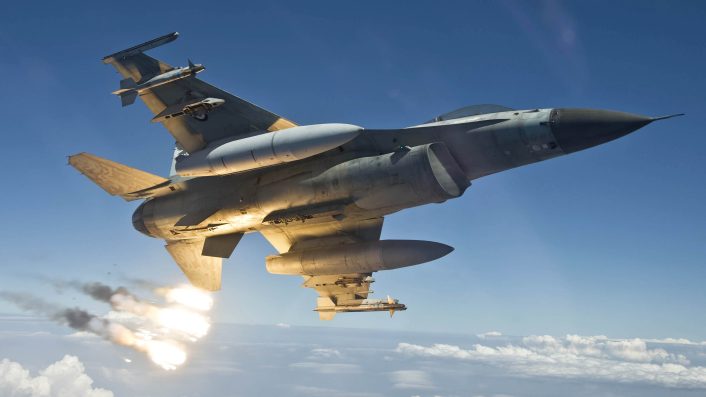
Ramstein Flag: Strengthening NATO’s Air Power
The “Ramstein Flag” exercise, which Greece played a key role in organizing, marked a significant milestone in NATO’s efforts to refine its air defense capabilities. Designed to address evolving geopolitical threats, the exercise emphasized NATO’s resolve to deter potential adversaries and ensure the readiness of its forces. The event brought together various Allied Air Forces and integrated them with Maritime, Land, and Special Operations forces, showcasing the full range of NATO’s Air Power.
#NATO exercise Ramstein Flag took off for a combined mission flying across Greece 🇬🇷 to demonstrate multinational Air Power capability
During the flight, 12 fighter jets from the Nations 🇬🇷🇫🇷🇭🇺🇮🇹🇵🇱🇵🇹🇪🇸🇸🇪🇺🇸 flew in formation #StrongTogether
Read more: https://t.co/sFihIDD5Zr pic.twitter.com/v67m0SvA5C
— NATO Air Command (@NATO_AIRCOM) October 4, 2024
Focused on countering anti-access/area denial (C-A2/AD) threats, the exercise allowed NATO to practice neutralizing adversary military infrastructure and ensuring freedom of movement for Allied forces. As noted by Air Marshal Johnny Stringer, Deputy Commander of NATO’s Allied Air Command, “The exercise is crucial for maintaining peace and ensuring NATO’s Air Forces are prepared to defend the alliance.”
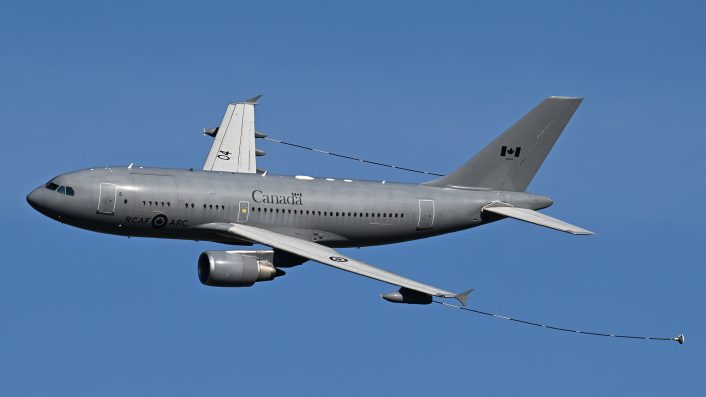
The training was particularly vital in an environment where Russian military actions near NATO’s eastern borders have raised concerns. “Ramstein Flag” represented the future of NATO exercises, allowing participating nations to simulate responses to modern air and missile threats that could jeopardize air superiority in a potential conflict. General James B. Hecker, Commander of NATO’s Allied Air Command, highlighted the significance of the exercise, stating, “As geopolitical tensions continue to evolve, so too must NATO’s exercise design.”
The exercise featured participants from Canada, France, Greece, Hungary, Italy, Poland, Portugal, Romania, Spain, Sweden, United Kingdom and United States with a wide variety of fighter jets including F-16s, Dassault Rafales, F-35s, Eurofighter Typhoons and F-4E Phantoms.
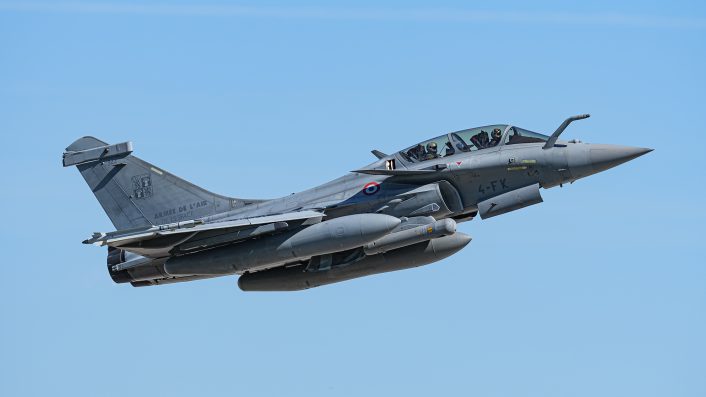
Balancing Regional and International Responsibilities
Greece’s decision to decline the Baltic air policing request is also a reflection of its strategic balancing act between domestic defense priorities and its commitments to NATO. In addition to patrolling Balkan airspace, the Hellenic Air Force is preparing to take on air policing duties in Bulgaria in partnership with Italy, as part of a 2025 expansion of its NATO obligations. Bulgaria, which currently operates an aging fleet of MiG-29 jets, has ordered new F-16s but will not have them operational for another year.
Athens has also highlighted its domestic defense needs, especially in the Aegean, where regional tensions remain high. Greek officials have pointed out that the HAF is responsible for safeguarding national airspace while also participating in multiple international exercises. Recent engagements, such as the “Ramstein Flag” exercise and Greece’s involvement in India’s “Tarang Shakti” drills, have placed additional strain on the HAF’s resources.
Moreover, Greece’s existing defense commitments extend beyond its immediate region. The country currently has a Patriot missile battery deployed in Saudi Arabia and is unable to meet additional NATO requests for military equipment.
As Greece continues to manage its growing defense obligations in the Balkans and the broader Eastern Mediterranean, its decision to prioritize regional stability over the Baltic mission underscores the nation’s careful calibration of its military resources in an increasingly complex global security environment. While the Hellenic Air Force is unable to take on new NATO air policing missions for now, its role in exercises like “Ramstein Flag” ensures that Greece remains a key player in NATO’s collective defense strategy.
